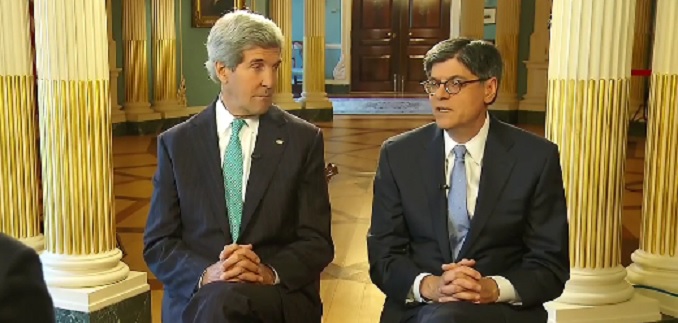The Treasury Department on Thursday leveled sanctions against a Beirut-based network of companies spanning the Middle East and China:
Hezbollah relies heavily on front companies such as Stars Group Holding, which continue to procure dual-use material for the organization to enhance its military capabilities. Stars Group Holding has covertly purchased sophisticated electronics and other technology from suppliers around the world, including a range of engines, communications, electronics, and navigation equipment. These materials have directly supported Hezbollah’s development of unmanned aerial vehicles for its destructive military activities in Syria.
In addition to using the technology to support the Syrian war, where Hezbollah assistance has been critical as the Bashar al-Assad regime spent the early part of 2014 rolling back a series of opposition gains, the Obama administration accused the Iran-backed terror group of using the technology to spy on Israel:
The Obama administration accused Hezbollah, which the U.S. designates as a terrorist organization, of using the drones to support its war inside Syria to back President Bashar al-Assad —and to conduct aerial surveillance on Israel.
“With disturbing reach far beyond Lebanon, Hezbollah’s extensive procurement networks exploit the international financial system to enhance its military capabilities in Syria and its terrorist activities world-wide,” David Cohen, the Treasury’s undersecretary for terrorism and financial intelligence, said on Thursday. “This global terrorist activity and expanding criminal network belie Hezbollah’s claimed purpose as a national liberation movement.”
The move to blacklist Stars Group Holding is the latest in a string of bipartisan efforts in Washington to disrupt Hezbollah’s operations. In June, the House Foreign Affairs Committee unanimously passed the Hezbollah International Financing Prevention Act of 2014, which provides the White House “with tools to target and impose sanctions on foreign banks that conduct business with Hezbollah and its enablers.”
The legislation was in May described by the insidery Al Monitor Pulse as part of an effort by lawmakers in Washington to “snuff out the Shiite militia.” Senator Marco Rubio (R-Fl.) said in a statement at the time that the legislation was indirectly aimed at Iran, which funds Hezbollah and also provides backing to the Assad regime in Syria.
Hezbollah has in recent months doubled down on its support for the Assad regime, deepening its involvement in Syria, despite its own insistence that it was an indigenous Lebanese group promoting Lebanese interests. The terror organization’s willingness to endanger Lebanon’s economic and financial stability in pursuit of its global terror campaigns, often if not exclusively to promote Iranian interests, sits uneasily alongside that claim.
[Photo: CCTV America / YouTube]




